
🗣️ How to Say “It Depends” Naturally in Chinese — Not Just “我不知道”
Want to say “it depends” in Chinese and sound natural? Instead of the textbook “我不知道” (wǒ bù zhīdào), try native phrases like “看情况” (kàn qíngkuàng) or “不一定” (bù yídìng) to sound more flexible and conversational.

🧭 The Word Order for Time and Place in Chinese
Where do “yesterday” and “at home” go in a Chinese sentence? Learn the simple rule to master time and place word order — and avoid sounding awkward.
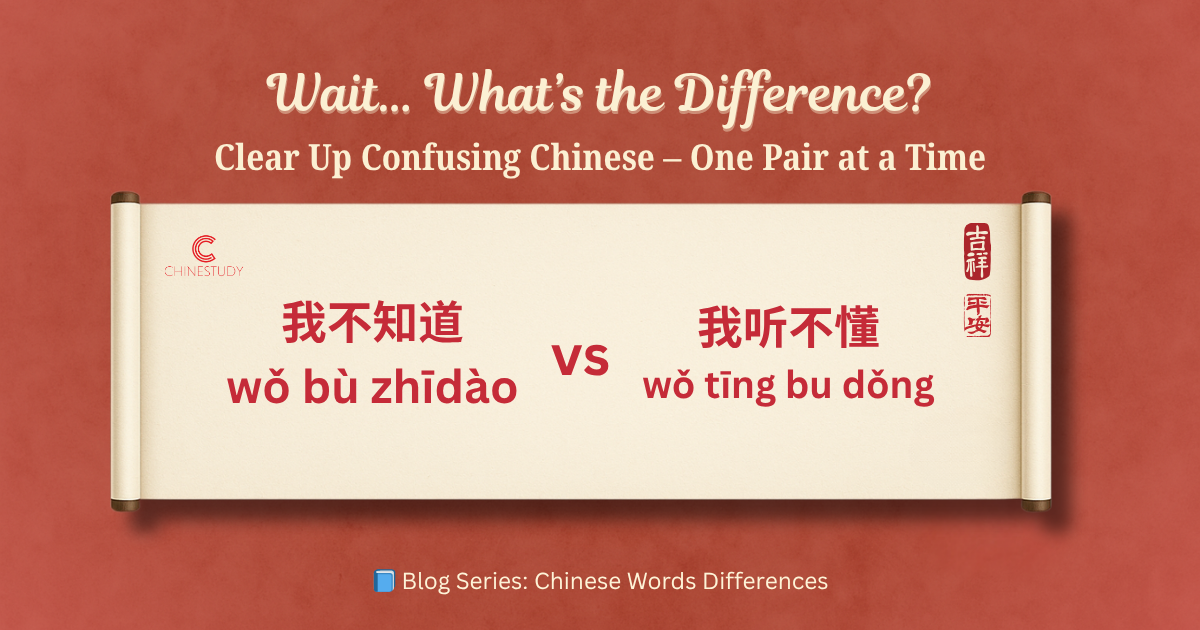
🤔 我不知道 vs 我听不懂 – What’s the Difference?
Think both mean “I don’t understand”? Not quite! Learn the real difference between 我不知道 and 我听不懂 — and when to use each in Chinese conversation.
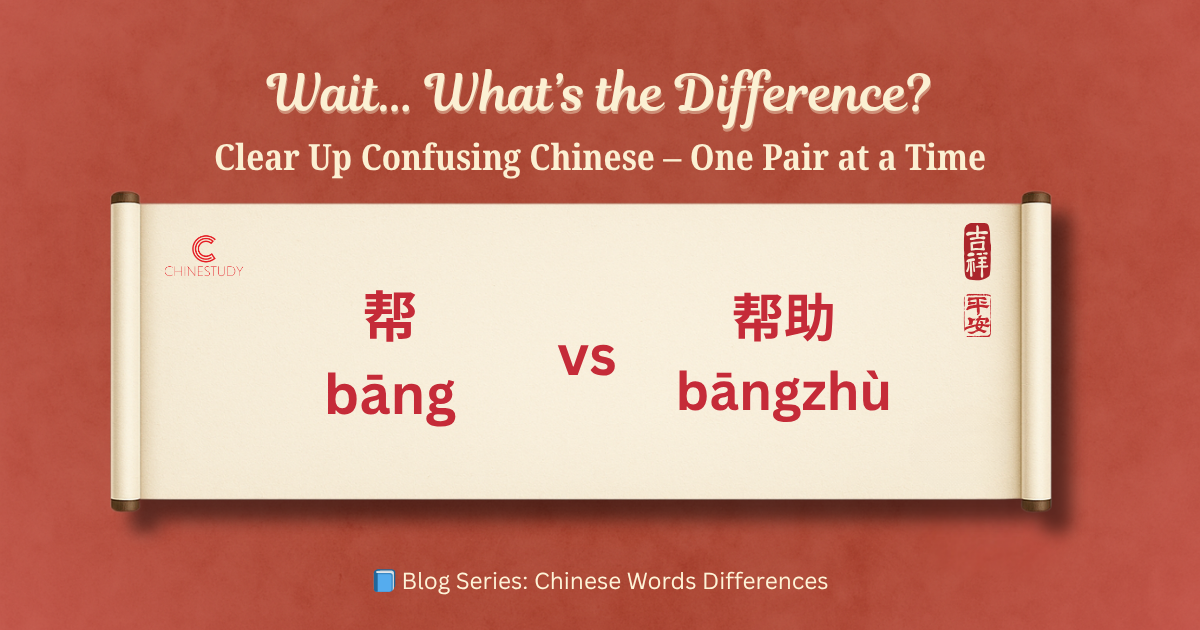
🧐 帮 bāng vs 帮助 bāngzhù – What’s the Difference?
帮 and 帮助 both mean “help,” but they aren’t always used the same way! Learn when to use each one naturally in Chinese, with clear rules, real examples, and a quick practice quiz.

📝 How to Say “You Mean…?” Naturally in Chinese — Not Just “我不明白”
Want to clarify what someone just said? Don’t say “我不明白”! Use real-life Chinese phrases like “你的意思是…?” or “所以你是说…?” to sound more natural and polite.

🗣️ How to Say “I’m Not Free” Without Sounding Cold — Not Just “我没空”
“我没空” is correct, but it can sound cold. In this post, you’ll learn how to say “I’m not available” more naturally with phrases like “最近挺忙的”, “改天吧”, and “看情况吧”.
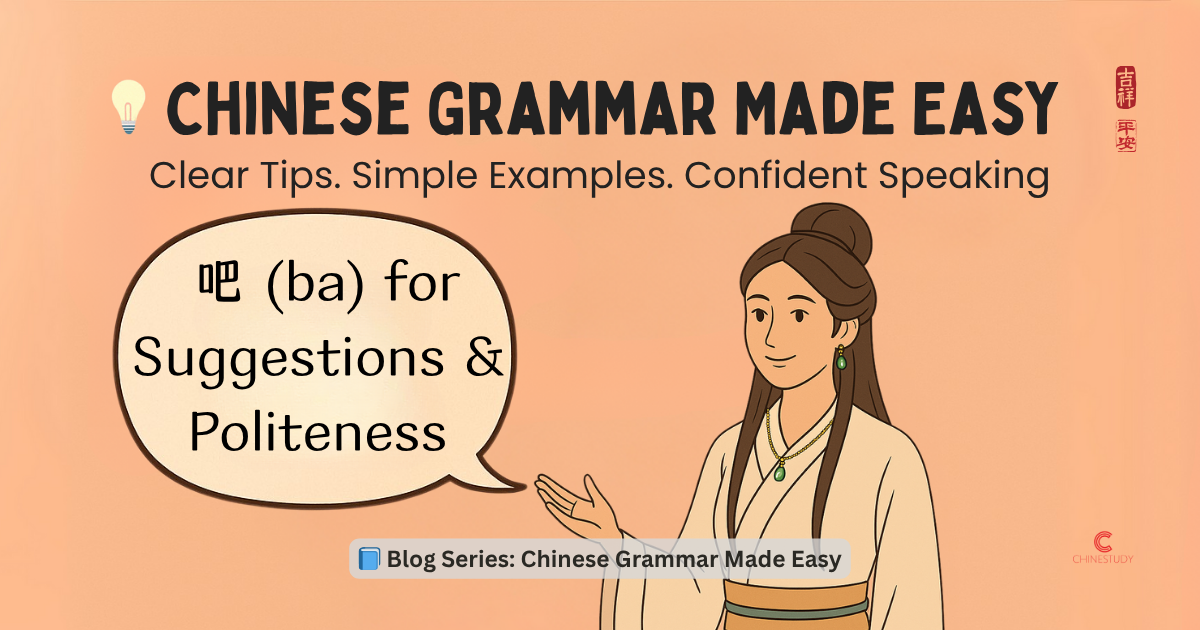
📝 How to Use 吧 (ba) in Chinese for Suggestions and Polite Sentences
Learn how to use 吧 (ba) in Chinese to sound more polite and natural when making suggestions, soft questions, and polite requests. Clear examples and easy practice inside.

How to Say “I Like It” Naturally in Chinese — Not Just “我喜欢”
“I like it” in Chinese isn’t always “wǒ xǐhuan.” Native speakers use softer, more natural phrases like tǐng xǐhuan de, mán xǐhuan de, and hái mán xǐhuan de to sound more casual and real.
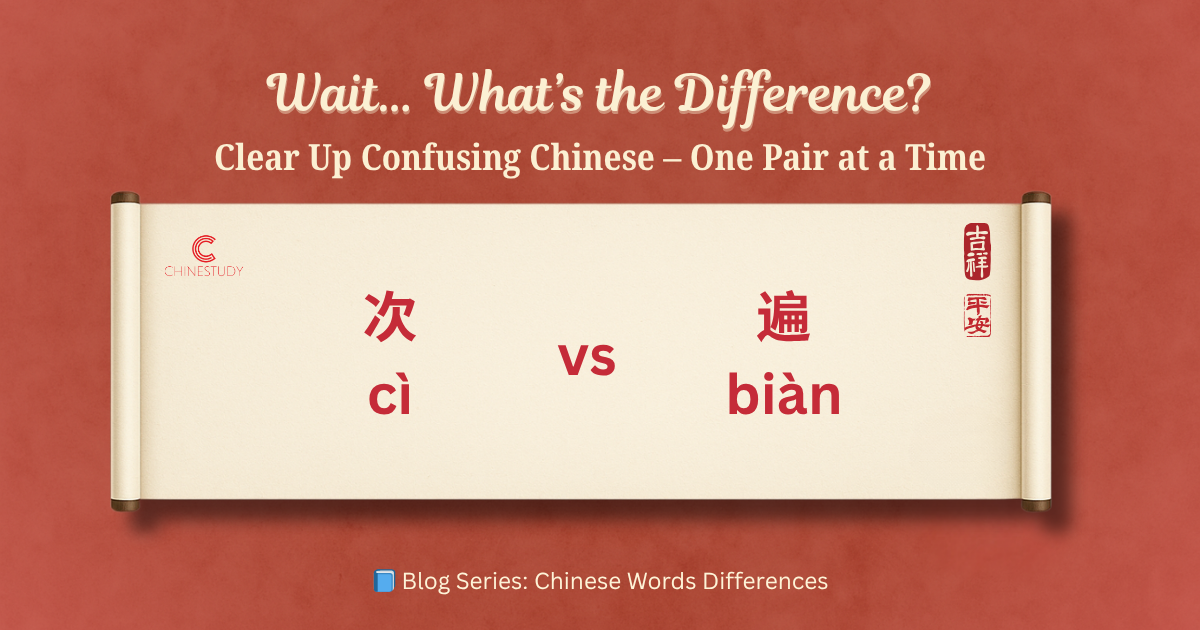
🌀 次 cì vs 遍 biàn – What’s the Difference?
Both 次 and 遍 mean “time(s),” but they’re not the same! Learn when to use 次 for counting actions, and when 遍 is better for complete processes — with examples, mistakes, and a quick quiz.

How to Say “I’m Busy” Naturally in Chinese — Not Just “我很忙”
“我很忙” is correct but sounds robotic. Learn how native speakers really say they’re busy with phrases like “挺忙的” and “忙死了” — colorful, casual, and truly Chinese.
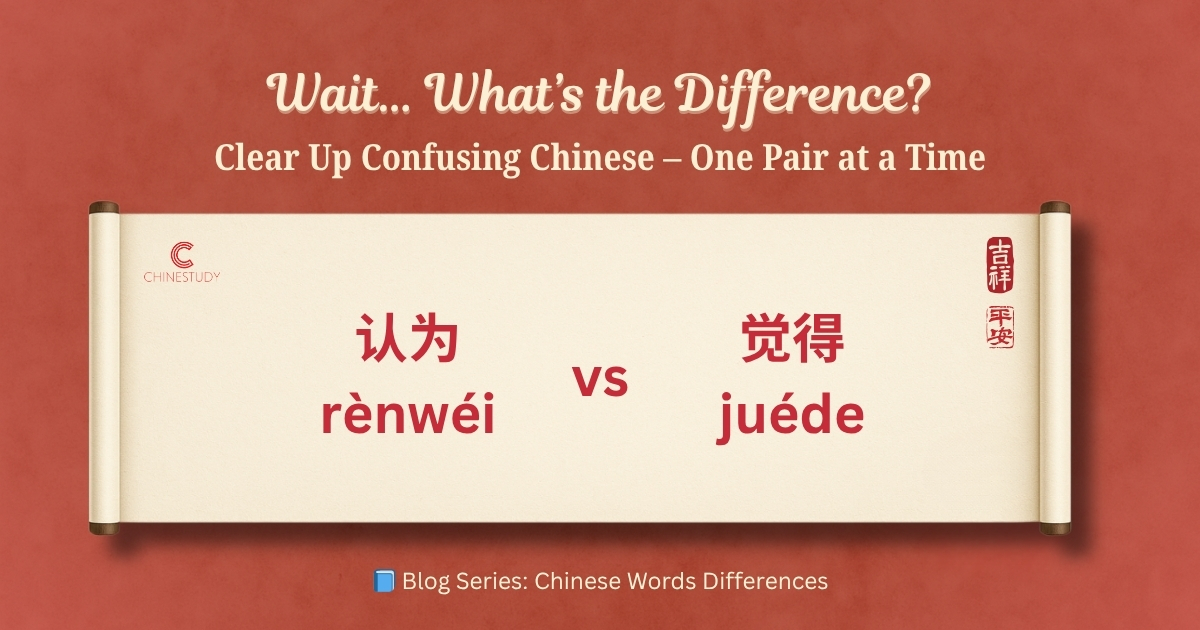
🤔 认为 rènwéi vs 觉得 juéde – What’s the Difference?
认为 and 觉得 both mean “to think,” but they feel very different. One is formal and logical, the other casual and personal. Learn when to use each one with simple examples!

How to Say “Thank You” Naturally in Chinese — Not Just “谢谢”
“谢谢 Xièxie” is polite, but it can sound generic. Learn three heartfelt ways to show gratitude the way native speakers do.

How Chinese People Really Say Goodbye — Not Just “再见”
Saying “再见” sounds polite — but also stiff. Learn how native speakers say goodbye naturally with phrases like “拜拜,” “回见,” and “走了.”

How to Say “I’m Fine” the Way Locals Do — Not Just “我很好”
Instead of the robotic “我很好” (wǒ hěn hǎo), try these natural, friendly ways to reply to “How are you?” and sound more like a native speaker.
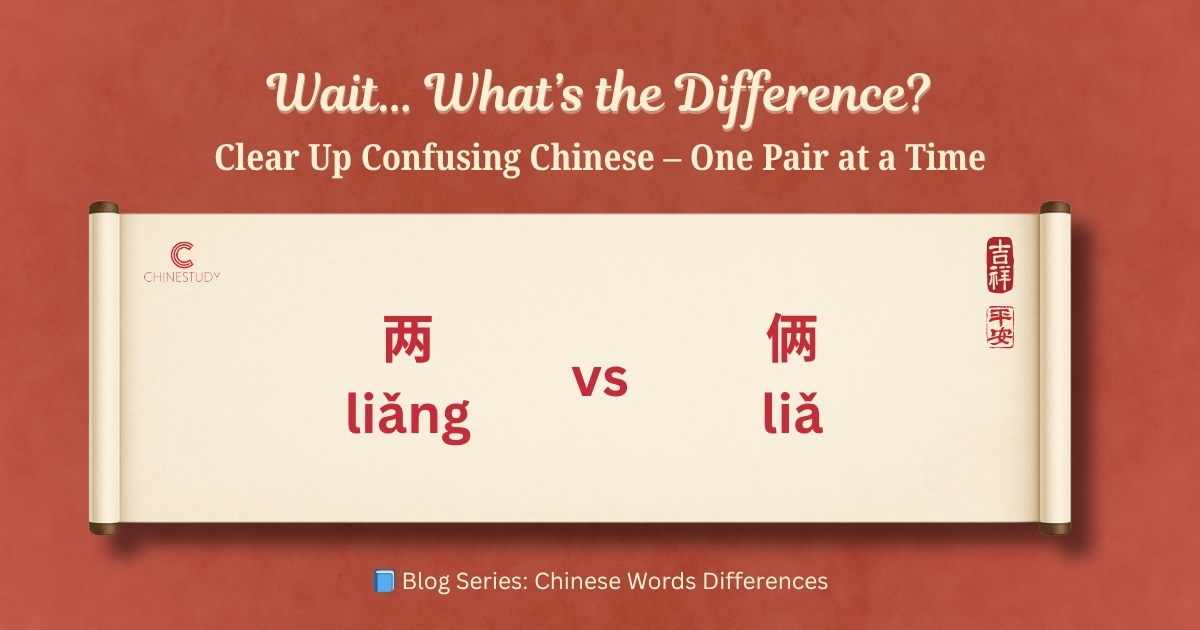
🧐 两 liǎng vs 俩 liǎ – What’s the Difference?
Think 两 (liǎng) and 俩 (liǎ) are the same? Not quite! This short guide will help you tell them apart and avoid common mistakes.
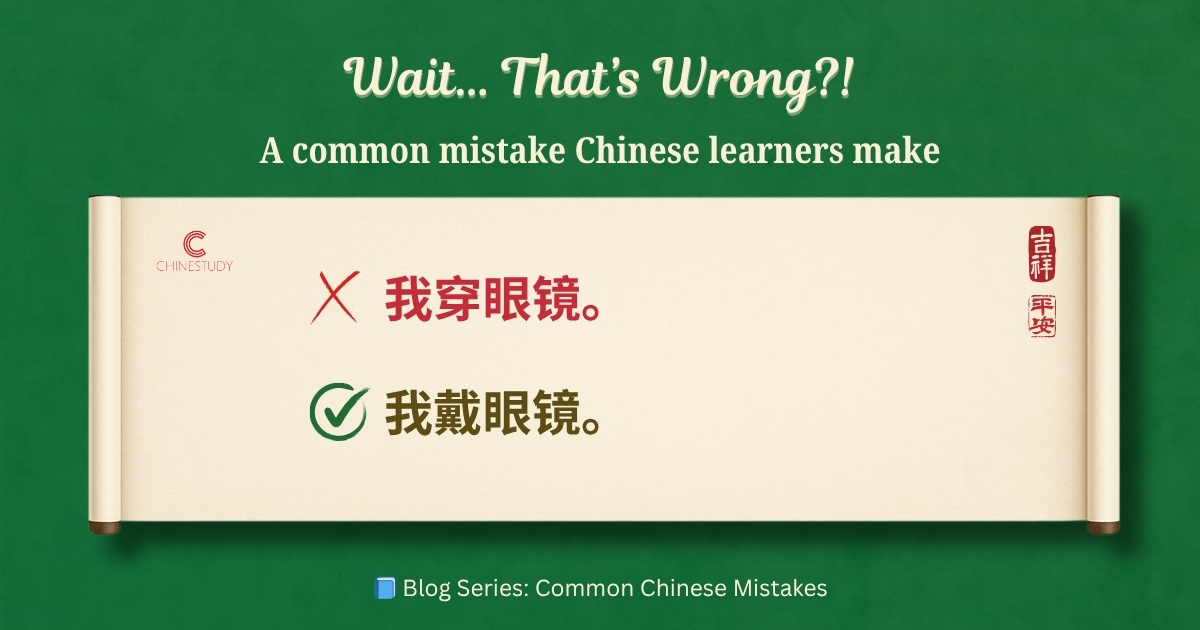
😅 我穿眼镜 – What’s Wrong with This Sentence?
Many learners say “我穿眼镜,” but this sentence is wrong in Chinese! In this post, you’ll learn the correct verb for “wear” and avoid this common mistake.
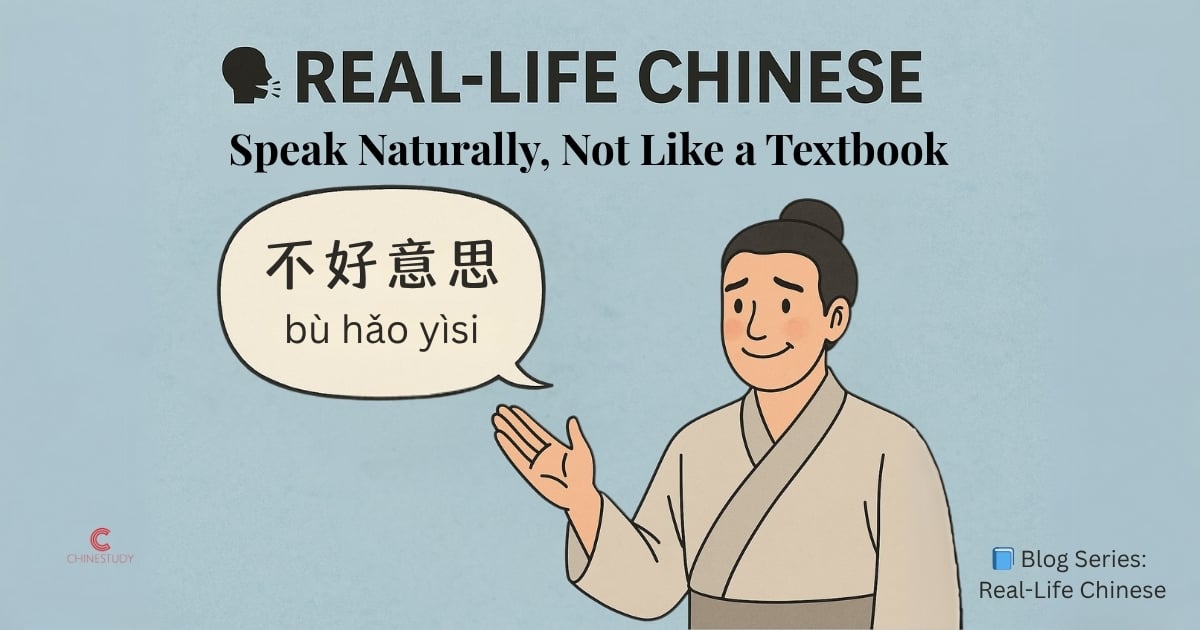
How Chinese People Really Say “Sorry” — Not Just “对不起”
Learn when to say “不好意思 (bù hǎo yìsi)” instead of “对不起”! It’s softer, more polite, and used in many everyday situations — perfect for real conversations.
